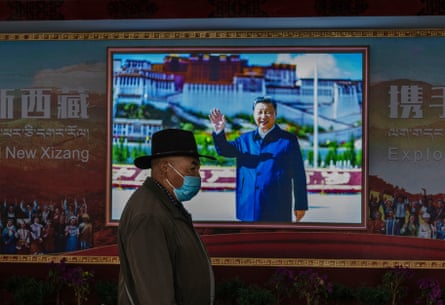A recent report has revealed that numerous Tibetans across the globe have experienced surveillance, extortion, and intimidation in relation to their family members who remain in Tibet.
According to researchers, the TCHRD’s recent report is the first to examine the extensive persecution of exiled Tibetans in countries such as the US, India, France, Australia, and Canada, shedding light on the ongoing oppressive actions of the Chinese government in Tibet.
The Chinese government is now actively trying to suppress any discussions or negative remarks from Tibetans, Hong Kong citizens, and Uyghur people who are living outside of China. This strategy is called transnational repression.
According to the Tibetan Centre for Human Rights and Democracy (TCHRD), Dhonden, a Tibetan residing in Switzerland, stated: “In 2021, I was contacted via video call by one of my relatives in Tibet. Upon answering, I discovered that they were calling from the nearby police station, with several members of our family present.”
The police advised me to behave appropriately while abroad and avoid participating in any actions that may contradict Chinese policies. They warned that if I did not comply, my family would face repercussions.
The study collected statements from 84 Tibetans who had been forced to leave their country and were now residing in 10 different nations. It was discovered that 49 of these individuals had been subjected to threats of violence against their family members who still resided in Tibet. Currently, it is estimated that there are approximately 125,000 Tibetans living in exile.
According to Tenzin Dawa, the executive director of TCHRD, the severity of this phenomenon is significantly higher in Europe compared to other regions. He also noted that US authorities are more proactive in addressing Chinese transnational repression.
During times considered “sensitive,” such as the Tibetan new year, also known as Losar, or the anniversary of the 1959 Tibetan uprising on March 10th, many Tibetans have experienced increased levels of repression, resulting in separation from their loved ones.
In 1951, China took control of Tibet through what the Beijing government refers to as a peaceful takeover, but Tibetans view as an invasion. The Chinese government has increased suppression in the area since widespread demonstrations in 2008.
According to Tsering Topgyal, a professor of international relations at Birmingham University, Tibetans who live outside of their homeland are being singled out because they are one of the most well-organized groups abroad and openly speak out against the rule of the Chinese Communist Party.
After the formation of the Central Tibetan Administration in the 1960s, Tibetan people have created educational institutions and places of worship, while also striving for their rights on a global level.
According to a security official from the Central Tibetan Administration, based in Dharamshala, India, approximately 80-90% of Tibetan refugees who have family in Tibet have been subject to transnational repression. This information was shared with researchers.
In 2021, Gyal Lo, a sociologist specializing in Tibetan education, escaped from China to Canada. According to Lo, there has been a significant change in the level of discourse surrounding Tibet and other politically charged subjects in China since Xi Jinping started his second term as president in 2018.

Display the image in full screen.
Gyal Lo remembers having conversations about Tibetan self-governance during a dinner with his Han Chinese friends and coworkers before 2018. However, since then, a majority of them have ended their relationship with him.
Gyal Lo is no longer in communication with his family after they advised him to refrain from publicly criticizing the Chinese government. He no longer feels secure reaching out to them.
“I informed my 86-year-old father that I had to depart from home, promising to return soon,” he recalled. “I never expected that this would result in a complete estrangement from my family.”
Gyal Lo stated that transnational repression not only disrupted familial relationships, but also weakened unity among the Tibetan diaspora and hindered their capacity to rally against Chinese policies in Tibet.
Source: theguardian.com


